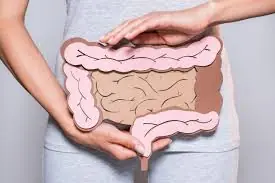Advertisements
Intestinal balance has been gaining more and more attention when it comes to health and well-being. More than just avoiding digestive discomfort, maintaining a healthy intestine is crucial to strengthening the immune system, improving mood and even helping with weight control. Recent studies reveal that intestinal health is directly linked to several aspects of the body, influencing everything from nutrient absorption to hormonal regulation. This content will explore the importance of intestinal microbiota balance and how it can be the true secret to a full and healthy life.
Throughout the text, the main factors that influence intestinal balance will be presented, such as diet, hydration, stress and daily habits. The best practices for cultivating a diverse and robust microbiota will be discussed, including the introduction of foods rich in fiber and probiotics. In addition, the impacts of the excessive use of antibiotics and other medications that can harm the intestinal flora will be addressed, providing tips on how to mitigate these adverse effects.
Advertisements
Finally, this content will provide insights into how small changes in your daily routine can have a significant impact on your gut health and, consequently, on your quality of life. By understanding the relationship between your gut and mental health, you will be able to adopt practices that promote a holistic balance between your body and mind. Get ready to discover how taking care of your gut can be the key to a healthier, more balanced and happier life. 🌱

Understanding the Importance of Intestinal Balance
Gut health is essential for overall well-being and physical health. The gut is responsible for a number of important functions, including digesting food, absorbing nutrients, and eliminating waste. It is also home to trillions of microorganisms that make up the gut microbiota, which plays a crucial role in our health.
Advertisements
When the microbiota is balanced, it helps keep the immune system strong, regulates metabolism and even influences our mood and mental health. A healthy gut is like a well-tended garden: when the right “plants” grow, everything flourishes. But when the balance is disturbed, problems can arise.
Signs of Intestinal Imbalance
Identifying signs of gut imbalance is the first step to restoring gut health. Some common symptoms include bloating, gas, diarrhea or constipation, unexplained fatigue, skin irritation, and even mood swings and anxiety. 🤔
These signs may indicate that the microbiota is out of balance, which can result from factors such as poor diet, excessive stress, prolonged use of antibiotics, and lack of physical activity. Being aware of these signs can help us take proactive steps to restore intestinal harmony.
The Benefits of a Healthy Gut
Maintaining a healthy gut provides a range of benefits beyond digestive health. A healthy gut can improve digestion by increasing the absorption of essential nutrients that our bodies need to function properly. It also strengthens the immune system, helping to protect the body from infection and disease.
Additionally, gut health is linked to mental well-being. Studies show that gut microbiota influences the production of neurotransmitters, such as serotonin, which affect our mood and behavior. This means that a balanced gut can promote a feeling of happiness and reduce stress and anxiety levels. 😊
Nutrition: Key to Intestinal Balance
Foods that Promote Gut Health
A balanced, nutrient-rich diet is essential for maintaining gut health. Incorporating foods that promote gut health can make a big difference. Here are some examples of foods that can help:
- Probiotics: Foods like yogurt, kefir, sauerkraut, and kimchi are rich in probiotics, which are beneficial bacteria that help balance the intestinal microbiota.
- Fibers: Fiber-rich foods like fruits, vegetables, whole grains, and legumes are essential for promoting healthy bowel movement and feeding the good bacteria in your gut.
- Prebiotics: Foods like garlic, onions, bananas, and asparagus contain prebiotics, which are indigestible fibers that feed the beneficial bacteria in your gut.
Avoid Foods that Unbalance the Gut
Just as some foods can promote gut health, others can contribute to imbalance. It’s important to be aware of foods that should be consumed in moderation:
- Processed Sugars: Excessive sugar consumption can feed harmful bacteria in the gut, leading to imbalance.
- Ultra-processed foods: Products rich in additives, preservatives and trans fats can negatively affect the intestinal microbiota.
- Alcohol: Excessive alcohol consumption can irritate the intestinal lining and disrupt the balance of the microbiota.
Healthy Lifestyle and Gut Health
In addition to diet, lifestyle also plays an important role in maintaining intestinal balance. Regular physical activity, stress management and adequate sleep are crucial aspects of intestinal health.
Exercise helps promote healthy bowel movements and increases the diversity of the microbiota. On the other hand, chronic stress can negatively affect gut health, as stress hormones can alter the composition of the microbiota. Therefore, relaxation techniques such as meditation and yoga are highly recommended.
The Importance of Sleep for the Intestines
Sleep is an important ally in maintaining intestinal balance. During sleep, the body carries out repair and regeneration processes, including balancing the microbiota. Getting enough sleep helps reduce stress and improves overall intestinal health.
Therefore, establishing a consistent sleep routine, creating a relaxing environment and avoiding the use of electronics before bed can help ensure restful sleep that is beneficial for intestinal health.
Conclusion
Maintaining a healthy gut is essential to ensuring a healthy and happy life. After all, a healthy gut is essential for efficient digestion, nutrient absorption and a strong immune system. When our gut microbiome is balanced, we are less likely to develop conditions such as inflammation, allergies and even chronic diseases. In addition, a healthy gut also has a direct impact on our mental well-being, since gut health is linked to the production of neurotransmitters such as serotonin, known as the happiness hormone.
However, achieving this balance requires attention and lifestyle changes. Eating fiber-rich foods like fruits, vegetables, and whole grains is crucial. Additionally, incorporating probiotics and prebiotics into our diet can promote the bacterial diversity needed for a healthy gut. However, we should avoid overconsumption of sugars and processed foods, which can unbalance our microbiome.
In short, taking care of our gut not only improves our physical health, but also promotes more positive mental well-being. Therefore, by focusing on gut balance, we can enjoy a healthier and happier life. It’s time to prioritize taking care of our gut and reap the benefits it brings to our body and mind! 🌱




